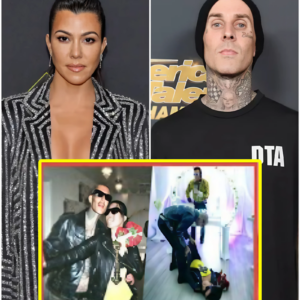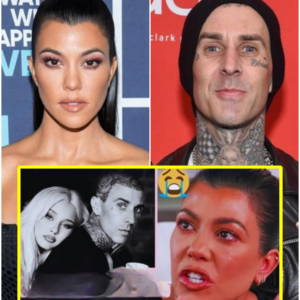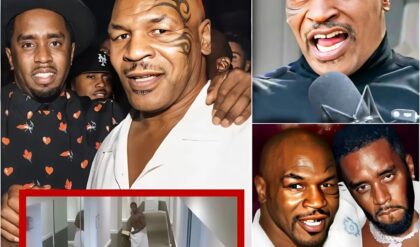Hip-hop isn’t just a genre; it’s a world of its own, rife with drama, competition, and larger-than-life personalities. DMX, one of the most dynamic figures in the industry, knew this all too well. His career wasn’t just about his raw talent and compelling lyrics; it was also about navigating a tumultuous industry landscape that often seemed more focused on gamesmanship than artistry.

From the early days, DMX’s journey was anything but conventional. Born Earl Simmons on December 18, 1970, in Mount Vernon, New York, he faced a rough upbringing. With a turbulent home life, including severe physical abuse from his mother and a struggle with bronchial asthma, DMX’s early years were fraught with hardship. At just five years old, he was sent to live with relatives in Yonkers to escape the chaos. By ten, he had already been expelled from middle school and was living in a group home. The harshness of his environment pushed him toward a life of crime and survival.
Yet, despite these setbacks, DMX’s passion for music emerged. He began beatboxing for local rapper Ready Ron, and his early experiences laid the groundwork for a future in the industry. DMX adopted the name “Darkman X,” which he later shortened to DMX, and started rapping with a style that was uniquely his own. His rise was punctuated by his stint in prison, where he honed his lyrical skills and developed his distinctive “Spellbound” style.
By the late 90s, DMX was making significant waves. His debut single, “Get at Me Dog,” went gold almost immediately. His first album, It’s Dark and Hell Is Hot, released in May 1998, was a massive success, driven by hits like “Ruff Ryders’ Anthem” and selling over five million copies. DMX’s energy and authenticity resonated with audiences, cementing his place in hip-hop history.
The late 90s and early 2000s saw DMX’s career soar. He released consecutive number-one albums, including Flesh of My Flesh, Blood of My Blood and …And Then There Was X. His 2000 performance at Woodstock, in front of over 300,000 people, showcased his electrifying stage presence. DMX’s success was further solidified with albums like The Great Depression and Grand Champ, though his career faced ups and downs due to legal troubles and personal challenges.
Behind the scenes, the hip-hop industry was rife with drama and rivalries. One of the most notable was DMX’s tumultuous relationship with Sean “Diddy” Combs. During an appearance on the Drink Champs podcast, DMX revealed that Diddy had initially dismissed him, citing his rough voice as a reason for not signing him. Despite this setback, DMX’s career flourished, and he remained with Def Jam, a major player in his success.
The feud between DMX and Jay-Z was another defining aspect of his career. The two rappers, who were once considered for a collaborative supergroup, had a famously contentious relationship. Tensions flared during a legendary rap battle, and the rivalry persisted throughout their careers. DMX accused Jay-Z of sabotaging his sixth album out of fear of competition, although Jay-Z has never acknowledged this claim publicly. Despite this, Jay-Z paid tribute to DMX after his death, underscoring the complexity of their relationship.
As DMX’s career progressed, he continued to make headlines with both his music and his personal life. His final album, Exodus, was released posthumously in 2021, a testament to his enduring legacy. Despite the controversies and conflicts, DMX’s impact on hip-hop remains undeniable.
The world of hip-hop is often as dramatic as the music it produces. DMX’s story is a compelling example of how personal struggles, industry politics, and raw talent can intersect, creating a narrative that continues to captivate fans and industry insiders alike.
News
(B) Travis Barker MISSED when Kourtney Kardashian returned home drunk after Kardashians party. (VIDEO)…
Courtney Kardashian made headlines just seven weeks after giving birth when she decided to attend the annual Kardashian Jenner Christmas party sans pants. Despite recently welcoming her fourth child, Rocky, with boyfriend Travis Barker, Courtney seemed anything but tired as…
(B) Kourtney Kardashian Shocking Revelation on Why Her Relationship with Travis Barker Ended. (VIDEO)…
In the public eye, Travis Barker and Courtney Kardashian’s relationship was once perceived as an unbreakable union, filled with passion and devotion. However, recent revelations paint a vastly different picture, revealing the underlying turmoil that ultimately led to its demise….
(B) Kourtney Kardashian SECRET XTAPE With Minor Justin Bieber REVIEWED by The Feds. (VIDEO)
The recent discovery of a video purportedly featuring Courtney Kardashian and Justin Bieber has ignited a firestorm within the entertainment industry, prompting intense speculation about its potential ramifications. This revelation, coupled with reports of a raid on Diddy’s home, has…
(B) EXTREMELY SHOCKING: Kris Jenner Lied About DNA Test To Khloe Kardashian As O.J. Simpson Could Be Her Father. (VIDEO)..
In a moment etched into the memories of internet users, Chris Jenner once orchestrated a dramatic DNA test to dispel rumors surrounding Khloe Kardashian’s paternity. Speculations swirled, stemming from Jenner’s revelations in her memoir “Chris Jenner and All Things Kardashian,”…
(B) Kourtney Kardashian finally shows proof her son Reign Disick is actually Justin Bieber’s son. (VIDEO)..
Courtney Kardashian recently embarked on an exciting escapade to Australia and New Zealand with her husband, Travis Barker, for his tour. However, it was their youngest son, Rain, who stole the spotlight during their adventures. With his mischievous antics and…
(B) NEWS HOT; Travis Barker Found Evidence of Kourtney Shared Baby With Justin Bieber (video)…
The rumor mill surrounding Justin Bieber and the Kardashian family has been churning for quite some time, igniting speculation about his connections with various members. While the details are murky and often sensationalized, let’s delve into the complexities of these…
End of content
No more pages to load











